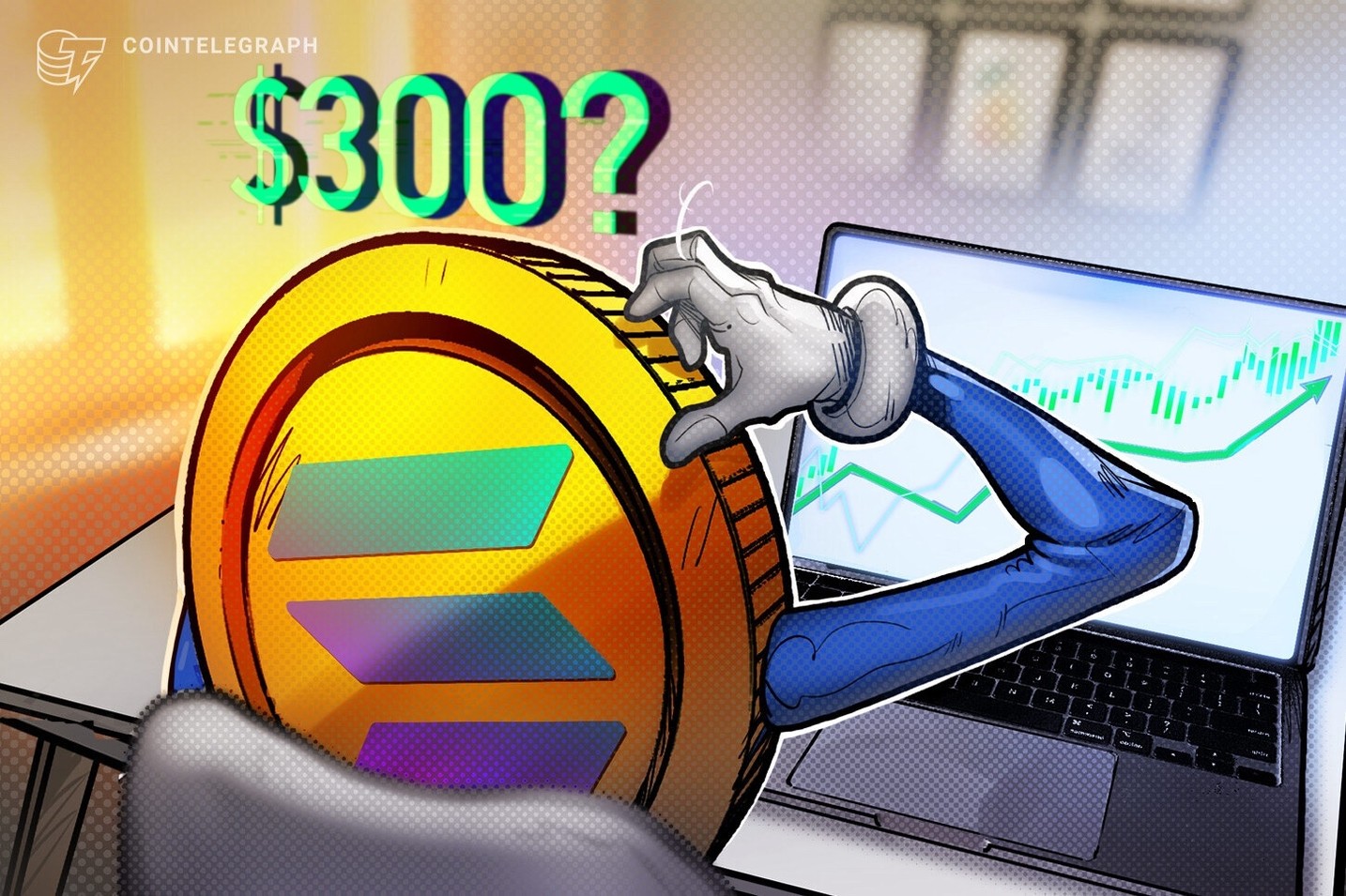Solana’s onchain and derivatives data suggest that SOL could make a run back toward its all-time high in the short term.

Solana's native token, SOL (SOL), has surged 8% since falling to $222 on Nov. 26. Despite this recovery, some investors remain skeptical, citing the sharp correction from its all-time high of $263.80 on Nov. 23 as a potential sign of a faltering bull run. However, onchain and derivatives data suggest that SOL still holds significant upside potential.
SOL/USD (blue) vs. altcoin market cap (purple). Source: TradingView /Cointelegraph
Investor frustration partly stems from SOL’s modest 1% gain between Nov. 20 and Nov. 27, during which the broader altcoin market capitalization climbed 12%. Several tokens outperformed significantly, with Stellar (XLM), Celestia (TIA), Fantom (FTM), Uniswap (UNI), and Polkadot (DOT) posting gains of 40% or more during the same period.
While pinpointing the exact cause of shifting investor sentiment is challenging, SOL holders should focus on Solana’s strengthening fundamentals. The network has solidified its position as the second-largest programmable blockchain by developer activity and user engagement. Supporting this growth, Solana’s total value locked (TVL) rose 48% in the 30 days leading up to Nov. 27.
Solana network total value locked (TVL), USD. Source: DefiLlama
To provide context, deposits on the BNB Chain increased 14% over the same 30-day period, while Tron network’s total value locked (TVL) grew by 13%. Solana’s standout metrics include the Jito liquid staking solution at $3.4 billion (+44%), the Jupiter decentralized exchange at $2.4 billion (+50%), and Raydium at $2.2 billion (+58%). This surge in deposits reflects the growing demand for SOL, driven by its expanding decentralized application (DApp) ecosystem.
Solana and Ethereum thrive in separate niches
Although some analysts suggest that SOL competes with Ether (ETH), data indicates that both networks can grow independently. Onchain activity on Ethereum increased 47% in the last 30 days, according to DappRadar. Uniswap volumes on Ethereum surged 62% during the period, while CoW Swap recorded a 71% gain.
While Solana dominates memecoin launches and trading, Ethereum continues to be the network of choice for decentralized finance (DeFi) opportunities. Notably, three of the top five highest-grossing DApps belong to Solana—Raydium, Jito, and Pump.fun—outperforming Ethereum’s leaders Lido, Uniswap, and Aave in this metric.
Solana and Ethereum can grow independently without directly competing for the same user base. However, Solana’s reliance on memecoins introduces greater risk, as the speculative frenzy surrounding tokens like BONK, POPCAT, MEW, and SPX6900—some of which surged over 100% in three months—may prove unsustainable in the long term.
Related: Stablecoin trading volume surges to $1.8T in November
To assess whether traders have shifted sentiment on SOL following the 10% decline between Nov. 23 and Nov. 27, the futures premium provides valuable insight. In stable markets, monthly futures typically trade 5% to 10% above spot prices to account for the settlement delay.
SOL 2-month futures annualized premium. Source: laevitas.ch
Currently, SOL futures indicate traders are paying an annualized 23% premium to maintain long (buy) positions—the highest level in seven months. While this suggests optimism, excessive bullishness can push this metric above 40%, heightening the risk of cascading liquidations during unexpected price corrections.
Based on Solana’s onchain activity and derivatives market data, further price appreciation appears likely. At its current $113.7 billion market capitalization, SOL trades at a 73% discount compared to Ethereum’s $429.4 billion, leaving significant room for growth.
This article is for general information purposes and is not intended to be and should not be taken as legal or investment advice. The views, thoughts, and opinions expressed here are the author’s alone and do not necessarily reflect or represent the views and opinions of Cointelegraph.
Read More Open link https://ift.tt/e5udkcH
0 Response to " Solana price recovers from sharp sell-off, is $300 SOL possible?"
Posting Komentar